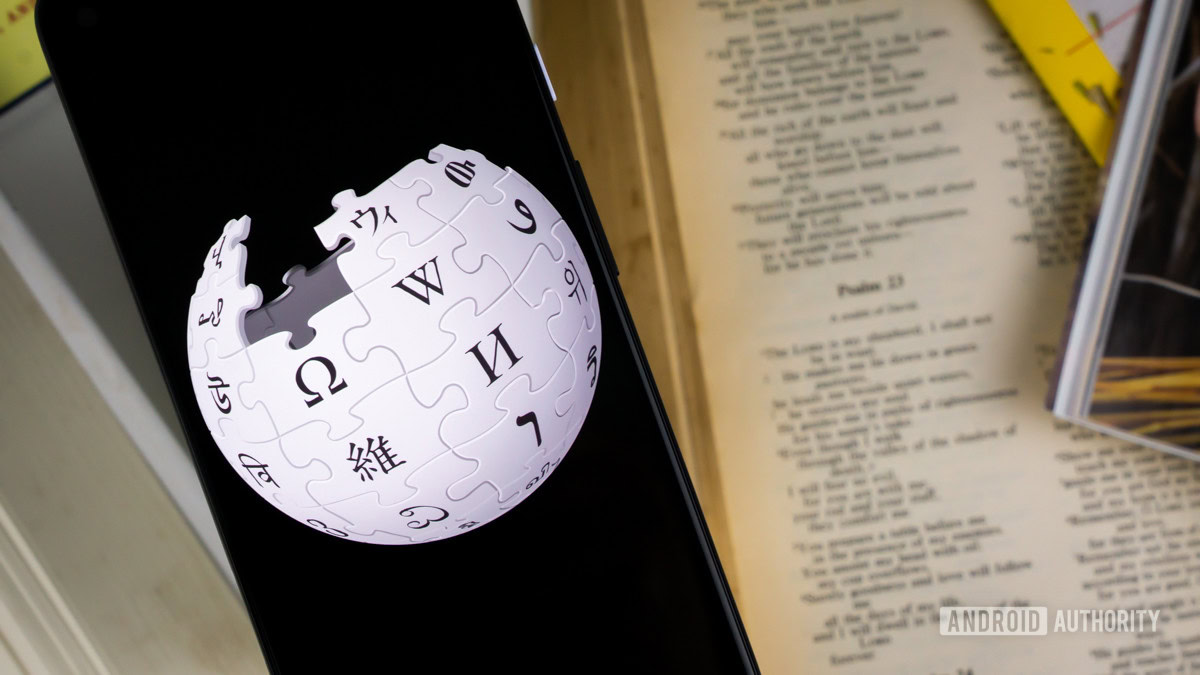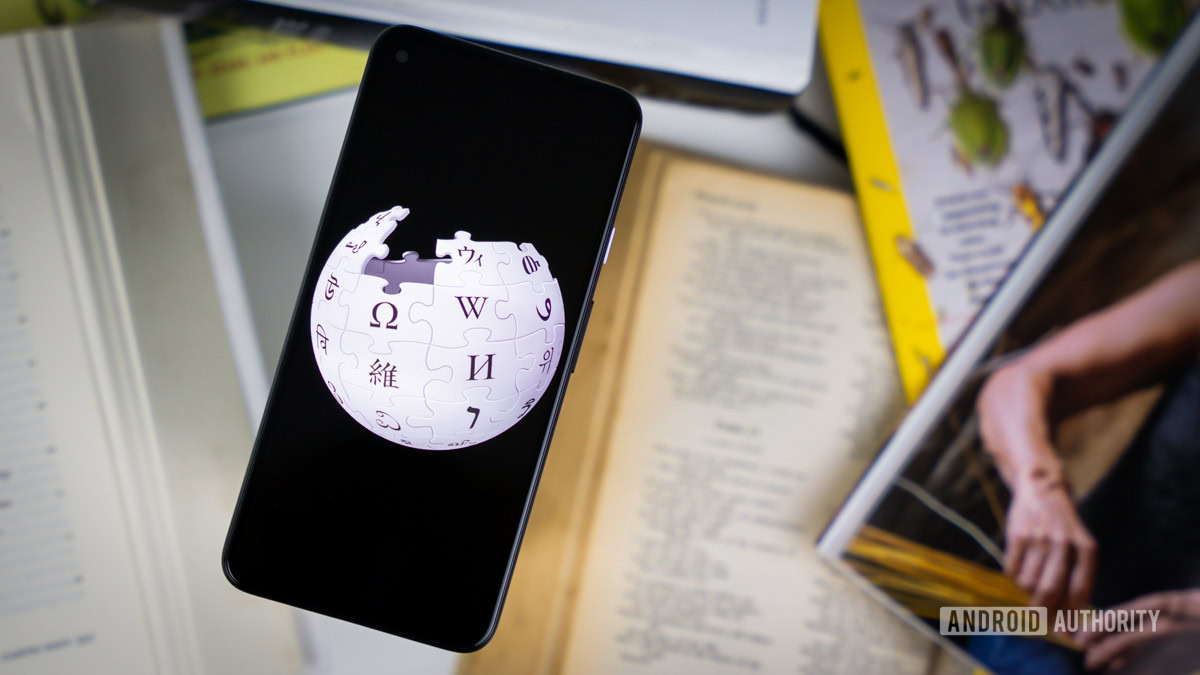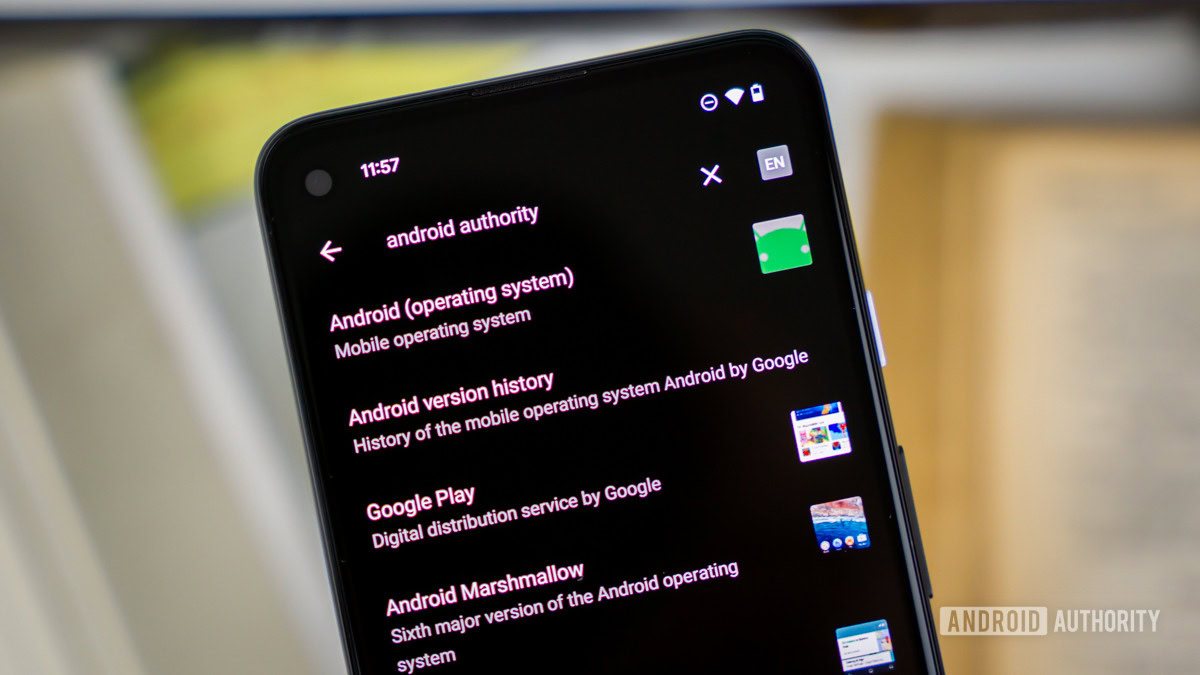Affiliate links on Android Authority may earn us a commission. Learn more.
What is Wikipedia and how does it work?

Chances are you’ve come across Wikipedia if you ever used the internet. The online encyclopedia seems to have information on just about everything in existence. If you want to get a general sense of any topic, chances are Wikipedia can get you up to speed. Do any of you know what is Wikipedia, and how it works, though? It’s a very interesting project, and today we’re here to tell you about it.
Related: The best search apps for Android
What is Wikipedia?

Wikipedia is a free online encyclopedia offered by the Wikimedia Foundation. It is the largest and most-read reference work in existence. You can find it available in 329 languages, covering the most popular worldwide languages.
What makes Wikipedia unique is its upkeep method. Wikipedia, as its name entails, runs on a Wiki editing system. This means it’s written and updated by the community. You can literally create a Wikipedia page or update an existing one. This is why many describe it as the democratization of knowledge or the liberation of information.
Interestingly, it was founded in 2001 as a side project made by Nupedia. Nupedia was written by experts and reviewed the traditional way. It was still free, but it wasn’t much different than a good ol’ encyclopedia. Back then, Nupedia and Wikipedia were only available in English.
Of course, a traditionally written encyclopedia can’t grow as fast as a community-driven one. Wikipedia became available in different languages only a couple of months after its launch, in March, 2021. The page was already available in 161 languages by 2004. By 2006 people were adding an average of 1,800 articles a day. We saw the English version of Wikipedia reach three million articles in 2009.
Since then, Wikipedia has become a knowledge giant and will appear on most Google searches you perform. In fact, it’s still one of the most visited websites, taking the fourth spot as of November 2021, with 5.97 billion monthly visits. It’s only beat by Google, YouTube, and Facebook.
Why does Wikipedia ask for donations?

Wikipedia operates as a non-profit organization and runs no ads on its websites. It also doesn’t sell its users’ information. Most of the company’s income comes from donations from companies, other organizations, or its users (us).
As of 2021, the company had about 550 employees and contractors. Its annual revenue was also about 160 million, with about 110 million in expenses. As you can see, it’s no small company, but it also doesn’t need as many employees as we would expect, likely because most of the content is written by volunteers.
Is Wikipedia reliable?

Wikipedia still doesn’t consider itself a reliable source of citations or information. This is likely to avoid any accusations or issues with readers, though. The argument is that anyone can edit Wikipedia articles at any time. As such, Wikipedia is subject to vandalism, misinformation, and differences in opinion. A misinformed user, or wrongdoer, might publish false information at any time.
Of course, it all depends on how you look at things. Many argue Wikipedia is a much more reliable source than other books and reference works. While volunteers can publish false information, others often quickly correct it. By now, most general information is also strongly supported by sources and documentation. You can quickly check different versions of an article, look at the editors’ sources, and corroborate any information.
There’s also the fact that Wikipedia might sometimes be more accurate than more official reference works. Updating an encyclopedia takes time and money (a lot of both) when edited and written by experts and following the traditional editing protocols. Knowledge is constantly evolving and changing. New discoveries are made every day, and world events happen daily.
Some classic encyclopedias might take years to update articles with new scientific discoveries. Chances are the same information will reach Wikipedia articles within the same day.
To summarize, we wouldn’t just trust Wikipedia’s information blindly. Especially if you’re using the information for serious work like essays, articles, and other official matters. It might be best to use it as a general guide, then follow sources and other websites to verify authenticity.
How do you create a new Wikipedia page
While anyone can create a draft of a page for Wikipedia and submit it, there are a lot of factors to consider to ensure it meets Wikipedia’s criteria. Otherwise, if you don’t follow these rules you risk the page being deleted or your contribution being removed. This article focuses mostly on what Wikipedia is, but if you want to learn more about the requirements for creating a new Wikipedia page, check out our guide.
How do you properly cite Wikipedia as a source?

How you cite a Wikipedia article depends on your writing format. The most popular ones are MLA, APA, and Chicago. The process is actually very similar to citing anything else online. We’ll take you through each to make sure you understand.
How to cite in MLA style:
- “Article Title.” Website Title, Publisher, date last updated or published, URL.
- Example: “Android.” Wikipedia, Wikimedia Foundation, 31 August 2022, https://es.wikipedia.org/wiki/Android.
Cite in APA style:
- Article title. (Year, Month Day last updated). Website title. URL
- Example: Android. (2022, August 31). Wikipedia.com. https://es.wikipedia.org/wiki/Android
How to cite in Chicago style:
- Author-date format: Website title. Year. “Article Title.” Publisher. Date last updated or published. URL.
- Example: Wikipedia.com. 2022. “Android.” Wikimedia Foundation. August 31, 2022. https://es.wikipedia.org/wiki/Android
- Notes and Bibliography: Footnote number. “Article Title,” Publisher, date last updated or published, URL.
- Example: 1. “Android,” Wikimedia Foundation, August 31, 2022, https://es.wikipedia.org/wiki/Android.
Are there any competitors or alternatives?
Wikipedia is kind of untouchable in terms of reference works, at least for now. Sure, there are plenty of large competitors, but they are pretty much all traditional encyclopedias. These include Encyclopedia Britannica Online, Encyclopedia.com, and World Book Online.
The most notable community-driven competitor is Citizendium. It was actually created by one of Wikipedia’s founders, Larry Sanger. It may be a bit more trustworthy than Wikipedia, as Citizendium fixes some of its issues. For starters, users have to use their real names and information. This makes it harder to “vandalize” content. Additionally, there is some “gentle expert oversight.” Professionals usually approve articles, but the content will still show up with a notification.
FAQs
Wikipedia is entirely free and runs no advertising on its websites. You can donate to help the cause, but it’s completely optional.
How much you donate to Wikipedia is truly subjective. Anything helps.
Wikipedia is completely written, edited, and updated by the community. People volunteer to improve the information.
Yes! Anyone can edit Wikipedia articles. Some important articles require you to create an account to edit pages. This is mostly to avoid the vandalizing of important information.
Wikipedia has revenue and expenses. It’s usually on the positive side, but it runs as a non-profit organization. This means partners and owners don’t make any money. All money is directed to the organization’s needs.